Post by Alexander Soderholm, MSc International Development and Humanitarian Emergencies student.
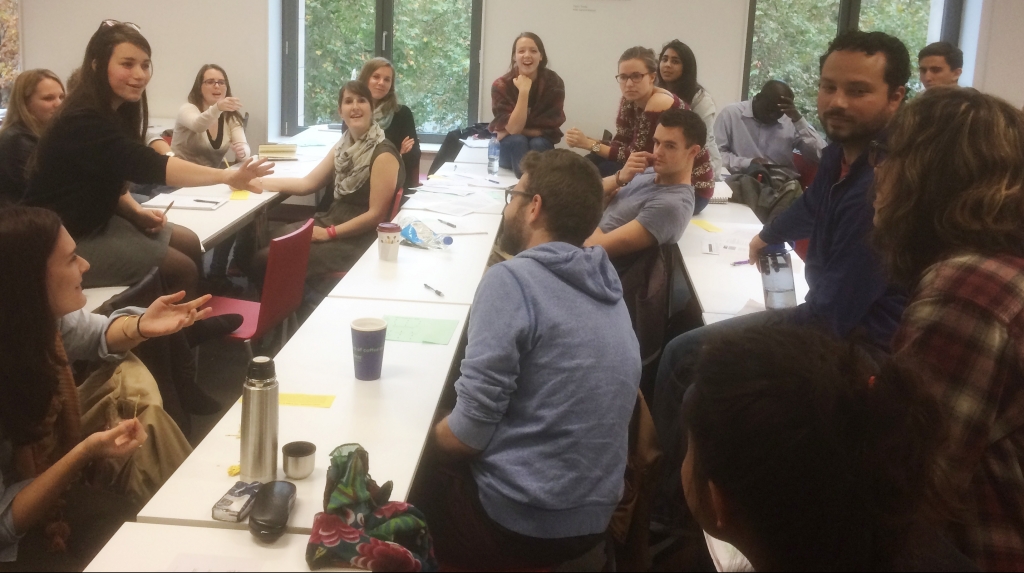
On 1st and 2nd November, Jill Gentle from World Vision visited the Department of International Development at the LSE to deliver practical training to the department’s postgraduate students on how to build logical frameworks for development projects. The weekend workshop is part of the department’s commitment to preparing students for their professional careers through hosting practical training sessions on the tools and methods adopted by international organisations in delivering projects within various areas of development.
With more than 20 years of experience within the development industry and past employers such as the European Union, the UK DfID, and Feed My People, Jill Gentle has accumulated a wealth of knowledge from planning to executing and implementing development projects around the world.
During the weekend conference, students at the Department of International Development were introduced to the logical frameworks used by international organizations in planning development projects – introducing a diverse set of tools that enable an effective analysis of the diverse issues faced when outlining large scale projects in the developing world.
75 postgraduate students attended the workshop, most of who aspire to build a career within the development industry. Through providing students with a range of opportunities to experience and learn about the practical aspects of international development work during their postgraduate degree, the department seeks to ensure that all students are equipped with the skills necessary for a successful career within the industry.
During day one, students were given the tools and training to complete a standard DFID logical framework. This was done through referring to several real case studies of logical frameworks used by international organisations, giving the attendees a chance to understand best-case-practices and recognise the strengths and weaknesses of the approach as a whole.
Group exercises were facilitated by current PhD students at the department, with whom the students completed a set of challenging exercises, such as building logical frameworks to prevent the spread of HIV – based on a case study of DFID and their HIV-prevention work in Uganda.
The second day aimed to give students a chance to build their own development logical frameworks from scratch, using methodologies such as the ‘Problem-’ and ‘Solution-Tree’. The students were faced with more case studies, challenging them to formulate their own policy recommendations based on real, contemporary, issues and projects in the humanitarian sector.
Practical case studies included the Disaster and Emergency Committee’s (DEC) recent appeal to increase funding in the struggle against Ebola – a humanitarian emergency that will be the subject of a talk by Karin Landgren (Special Representative of the UN Secretary-General to Liberia) in one of the LSE’s public lectures in November.
Overall, the conference received great feedback from students and the facilitators, with a majority of the attendees stating that it clearly contributed to their future career goals.
In the Lent term, the department is planning to host facilitators from the International Committee of the Red Cross (ICRC), who will deliver a workshop on healthcare and danger.
About the MSc International Development & Humanitarian Emergencies
Related Posts
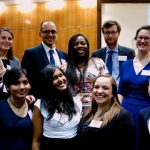 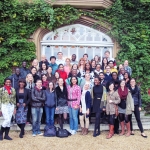 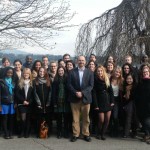  |
 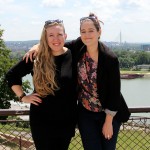   |





